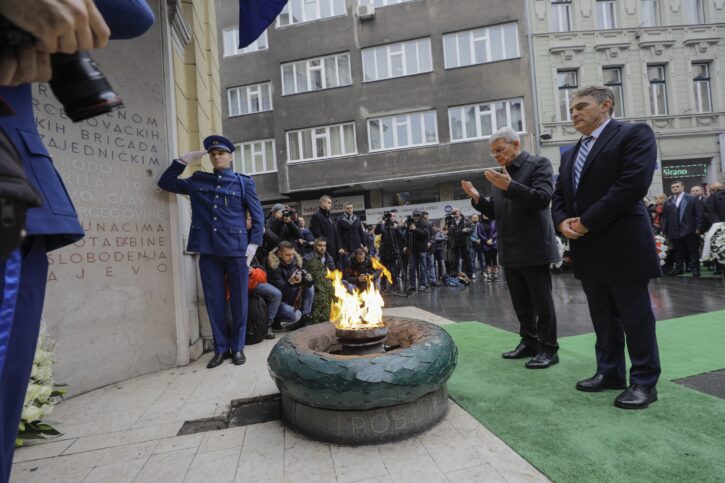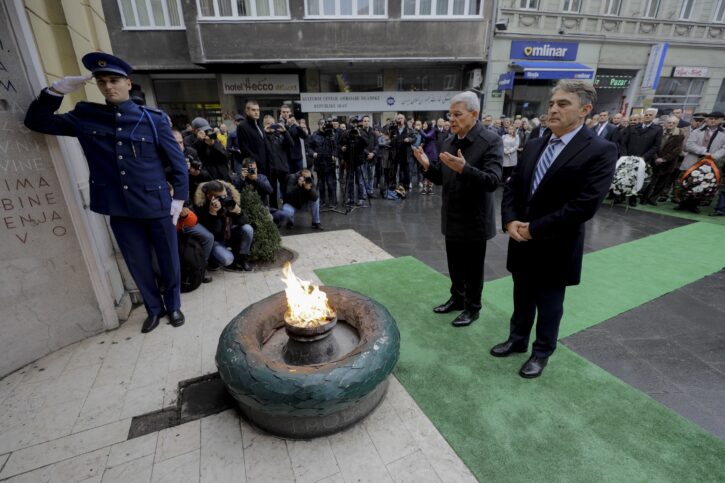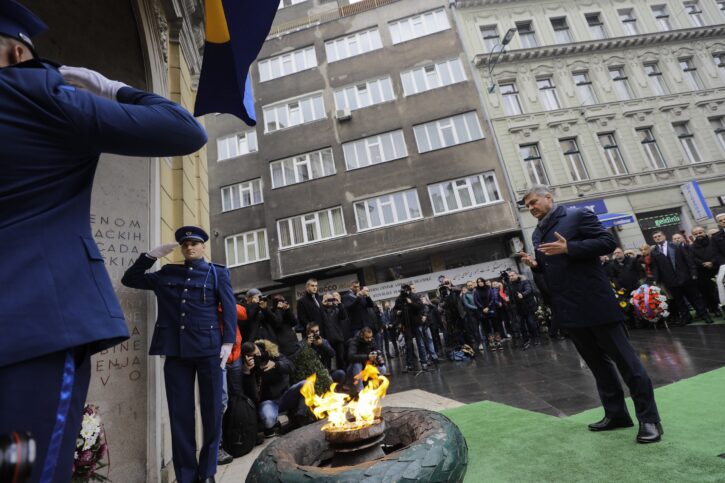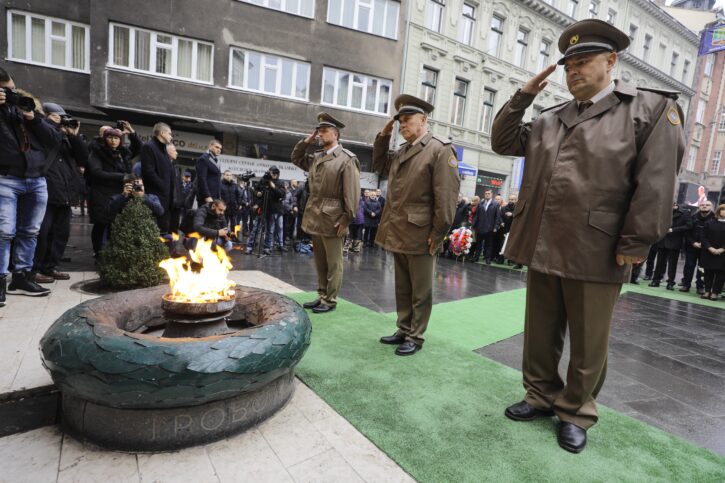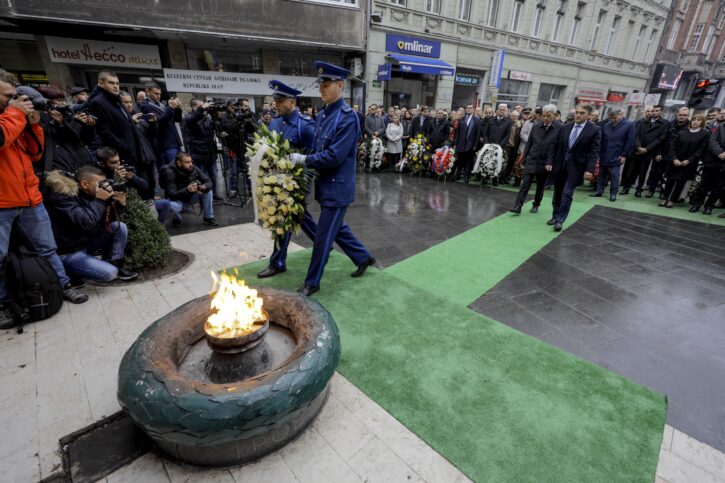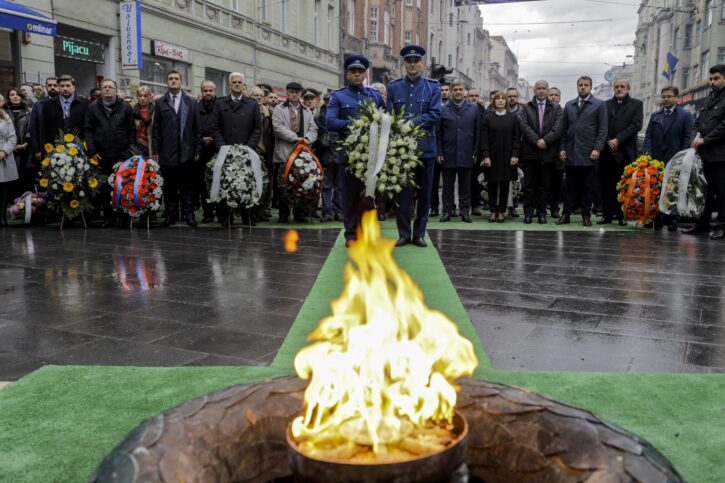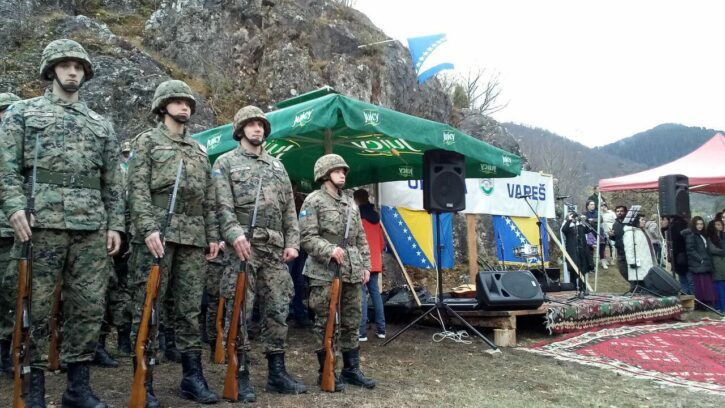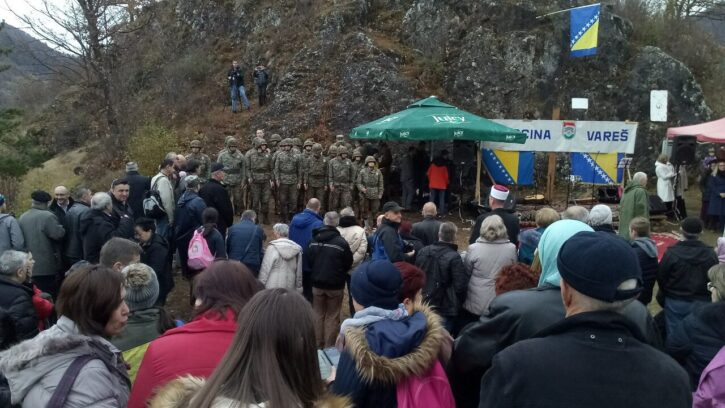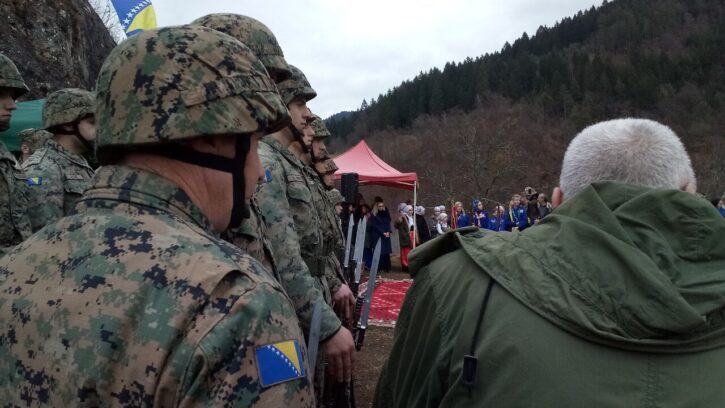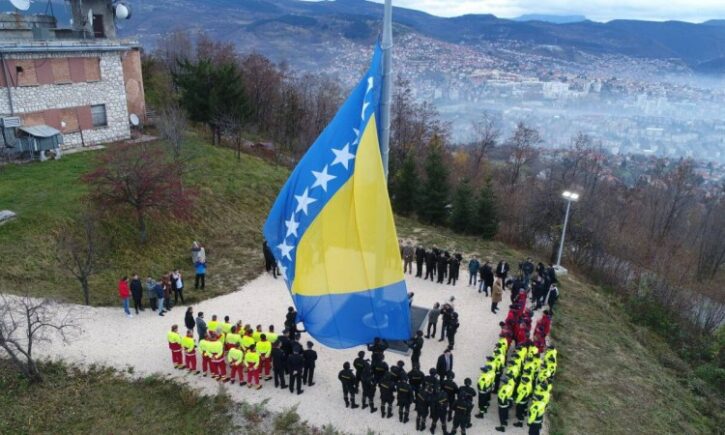
Bosnians mark their Statehood Day on Sunday again without leaders of the Bosnian Serbs who refuse to recognise the state and believe it should be dissolved.
To the tunes of the country’s anthem, the Bosniak and the Bosnian Croat members of the country’s tripartite Presidency, along with the Mayor of Sarajevo, raised the state flag on the top of the hill Hum, overlooking the capital of Sarajevo on Sunday morning.
“Bosnia’s history is filled with important dates, and November 25 is among of the most important ones,” said Mayor Abdulah Skaka.
The city delegation also laid flowers at some of the city’s monuments, such as the one dedicated to children who were killed during Bosnia’s 1992-95 war.
Bosnia and Herzegovina lost its statehood in 1463 when the Ottoman Empire conquered the old kingdom. It remained an Ottoman province until 1878 when it was taken over by the Austro-Hungarian Empire.
After WWI, Bosnia was part of the Kingdom of Serbs, Croats and Slovenes before communists renewed its statehood at a meeting in Mrkonjic Grad on November 25, 1943, and established it as one of Yugoslavia’s six republics.
“On that day (…) the statehood of Bosnia and Herzegovina, its territorial integrity and sovereignty were renewed and confirmed,” said Bosniak Presidency member Sefik Dzaferovic, adding that at that occasion the equality of all of its peoples and citizens was proclaimed.
Contemporary Bosnia and Herzegovina should be built on those principles and on the values of anti-fascism and equality of all of its citizens and peoples, he said.
“That’s the only path this country should be heading. It should be striving toward internal integration and secure equality for each of its residents as well as integration into the EU and NATO,” he said, adding, “I am convinced that this is what will happen in the end because that’s the only logical and normal path.”
He urged those who deny the holiday to read the messages sent from Mrkonjic Grad on November 25, 1943, and to think about them. If they do, he said, they will realise that this holiday is not hurting anyone.
His Bosnian Croat colleague, Zeljko Komsic, also called the holiday one of the most important ones for the country.
“Everything that is being talked about regarding democracy and civilisational values, primarily in Europe but also in other democracies in the world, Bosnia already had in 1943,” he said.
“This underlines the importance and the greatness of the people who worked on it,” he added.
Komsic also explained that what happened in 1992 was a continuation of events from WWII.
“All of this can be seen as an ongoing battle against fascism. This seems to be our destiny. Sometimes this battle is fought with guns and sometimes through politics,” he said.
“And just when you think it fell, that it was defeated, it somehow finds a way to resurrect,” he said, adding that fascism and chauvinism are still alive in this region, hidden, but also openly present.
“Our duty is to confront those fascists and chauvinists politically and repeat the message from 1993 and 1992 – that this idea will never rule these areas and that it will never win,” Komsic declared.
At a separate ceremony held at the remains of one of the old Bosnian Kingdom’s castles, Bobovac, in central Bosnia, a unit of the Bosnian Armed Forces were deployed to take part hours before it started.
Bosnia’s Defense Minister, Marina Pendes, a member of the hard-line Croat Democratic Union (HDZ), which seeks to establish another separate Croat entity to the two existing ones, had first refused to allow Bosnia’s Armed Forces to participate in the ceremony.
Her decision was praised by Bosnian Serb hard-line leader Milorad Dodik, who holds the Serb seat in the country’s Presidency.
Dodik opposes any ceremonies which mention Bosnia and believes the country should be dissolved and its Serb semi-autonomous region should secede.
“I believe the decision is absolutely correct because November 25 is not a statehood day as such a decision was never made,” he said.
“This is a holiday observed only by the Bosniaks and it's a speculative story they are trying to impose on everybody,” he added.
Dodik is currently is the chairman of the tripartite Presidency and said that this body would have to approve the Army’s participation, which was unlikely to happen since, when he received a letter from U.S. President Donald Trump congratulating Bosnia’s Statehood Day, he replied that he does not accept such a holiday.
However, a day before the ceremony on Sunday, Defense Minister Pendes suddenly approved the participation of the unit.
“We don’t know what brought about this turn but last night I was informed that the Armed Forces of Bosnia and Herzegovina will be at Bobovac after all,” said Adil Kulenovic, the head of an association of intellectuals from Sarajevo and one of the organisers of the ceremony.
“We are grateful to whoever this was, whoever influenced this decision,” he added.
The organiser stated on Saturday that it was “scandalous” that the Defense Minister approved the participation of the unit and the Army Orchestra at the last minute.

